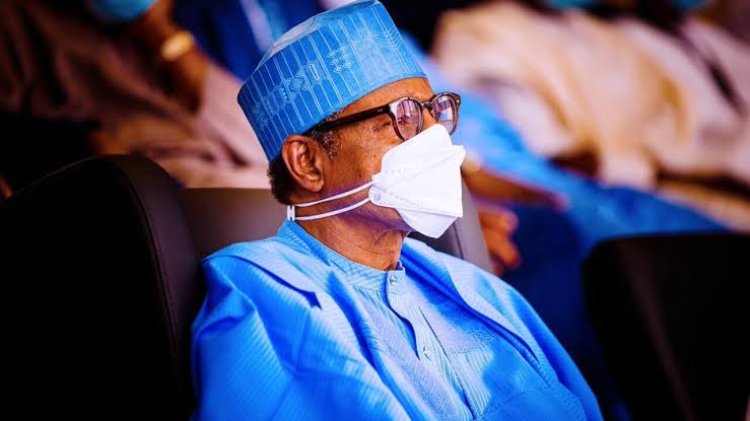COVID-19: 'Local Vaccine Production Now Matter Of National Security' — President Buhari
President Buhari says local vaccine production has become a matter of national security.

The President, Major General Muhammadu Buhari (retd.), Wednesday in Abuja, said increasing the capacity for in-country production of vaccines and medical supplies has become a matter of not just urgency, but of national security.
He, therefore, directed the Minister of Health, Dr. Osagie Ehanire, to submit a progress report by the end of May 2022 on the indigenous production of vaccines in the country.
In a statement signed on Wednesday, April 20, 2022, by the Special Adviser to the President on Media and Publicity, Femi Adesina, Buhari gave the directive while receiving the leadership of the Nigeria Integrated Biopharmaceuticals Industries Consortium, led by the Chairman/Chief Executive Officer of Fredlab, Mr. Vilarugel Cuyas.
The statement is titled ‘submit a progress report on local vaccine production next month, President Buhari directs Minister of Health.’
Recounting the impact of the COVID-19 pandemic on Nigeria’s economy and health systems and how some nations with comparative advantages in being centers of bio-pharmaceutical productions adopted a “me-first” attitude towards securing their citizens, President Buhari said:
‘‘At the advent of the COVID-19 pandemic, Nigeria was quick to respond to what seemed an existential threat, by strengthening the health system’s capacity to handle the pandemic – an initiative that continues till today in collaboration with the state government, private sector, and international partners.
‘‘Key lessons of the pandemic are that nations can be brought to their knees by disease outbreaks that cripple national and international trade, and that countries must be able to look inwards for sustenance in food and medical supplies. The benefit of this Administration’s early investment in agriculture came to light during this global turbulence.
‘‘However, we cannot say the same for essential medicines, health supplies, and most importantly, vaccines to protect our citizens. Increasing the capacity for in-country production of vaccines and medical supplies has therefore become a matter of not just urgency, but of national security.
He noted that many nations who had developed comparative advantages in being centers of bio-pharmaceutical productions adopted a “me-first” attitude towards securing their citizens; placing developing nations, particularly those in Africa, at a severe disadvantage.
The President noted that as part of the fallout and lessons learned from the crises, under his directive, the Minister of Health has been conducting local and international high-level consultations to seek access to the know-how and finance to revive domestic manufacturing of vaccines.
He asked the health minister and his team to work closely with the consortium on the Federal Government support required for the actualization of the NIBI project within the next few months.
Buhari noted that the consultations had become more important as Nigeria prepares to fully transition from the Global Alliance for Vaccines and Immunization support for the supply of vaccines by 2028.
"Since we consider food and medicine sufficiency as national security issues, technical and financial investments, and partnerships are priorities in our policy planning, with the assurance that Nigeria has the market and a pool of expert scientists to draw upon, from within and outside the country,’’ he said.
The President commended the NIBI consortium made up of European biotechnology companies Merck, Unizima, Rommelag, and Fredlab, who is collaborating with the Nigerian start-up PIA BioPharma to establish a world-class Bio-Pharma Industrial Complex for the manufacture of vaccines and essential therapeutics in Nigeria.
He said, “While the Ministry of Health continues to drive collaboration with investors for vaccines, pharmaceuticals, and medical devices, in a move towards self-sufficiency, I welcome the NIBI consortium’s desire to partner with the Federal Government in support of our agenda and look forward to the implementation of the NIBI project as it takes shape.”





































